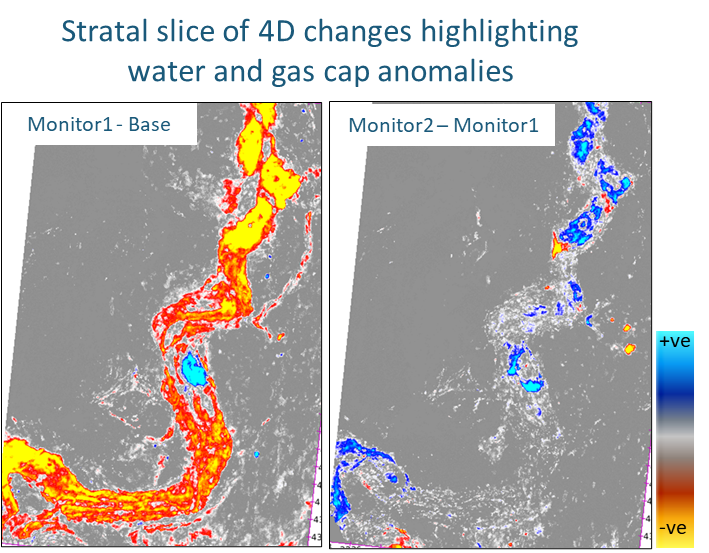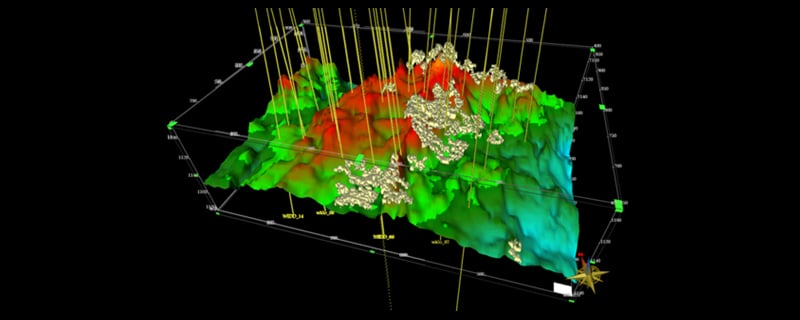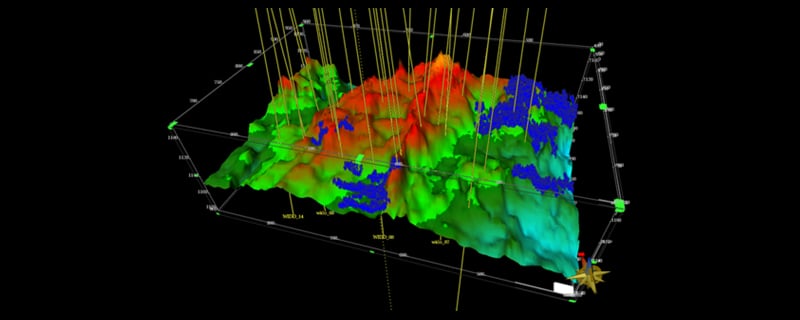Monitoring
Informed decisions ensure confidence and control over field management strategy to maximize return
Improve oil recovery and ensure CO2 storage sites are safe
Reservoir monitoring and field management in geoscience involve the continuous observation, analysis, and optimization of subsurface reservoir models for efficient resource extraction. This comprehensive approach is crucial in industries such as oil and gas, where understanding reservoir behavior over time is essential for maximizing production and ensuring long-term sustainability. Reservoir monitoring is crucial in EOR processes, where techniques such as water flooding, CO2 injection, or chemical treatments are used to improve recovery efficiency. Monitoring helps assess the effectiveness of these methods and guides adjustments to enhance oil or gas production. Monitoring occurs before, during, and after the injection phase of a CO2 storage project to ensure the storage of CO2 is safe, effective and permanent in all types of geologic formations.
Bringing it all together. Better models. Better results.
The growing role of time lapse seismic and the value of 4D technology has been seen in the energy industry as an effective way to reduce field management uncertainty, increase reserve and recovery, and improve the economics of E&P activities. Time lapse seismic characterization is most commonly used for locating bypassed reserves, optimizing infill-well locations and improving reservoir characterization results, monitoring CO2 storage sites and improving oil recovery (IOR) in unconventional reservoirs.
Time lapse data is expensive. The GeoSoftware team of experts extracts quantitative information beyond the traditional 4D analysis to fully utilize time lapes data, conduct quick conditioning and calibration, account for 4D low frequencies, and allow for detailed reservoir characterization and discriminate the pressure and saturation effect at the resolution necessary for static/dynamic models. Energy companies can take advantage of our flexible data management platform that handles multiple time-lapses and integrates all details and data from various disciplines. Our experienced regional experts coupled with mature 4D technology help our customers reduce drilling costs and identify additional field reserves.
Fully utilize time lapse seismic data for reservoir monitoring
The growing role of time lapse seismic and the value of 4D technology has been seen in the energy industry as an effective way to reduce field management uncertainty, increase reserve and recovery, and improve the economics of E&P activities. Time lapse seismic characterization is most commonly used for locating bypassed reserves, optimizing infill-well locations and improving reservoir characterization results, monitoring CO2 storage sites and improving oil recovery in unconventional reservoirs.
The GeoSoftware team of experts applies time lapse in projects to fully utilize 4D data, conduct quick conditioning and calibration, account for 4D low frequencies, and allow for detailed reservoir characterization and discrimination of the pressure and saturation effect at the resolution of static/dynamic model. Energy companies can take advantage of our flexible data management platform that handles multiple time lapses and integrates all details and data from various disciplines. Our experienced regional experts coupled with mature 4D technology help our customers reduce drilling costs and identify additional field reserves.



Gas out of solutions (left); Water replaces oil (right).
